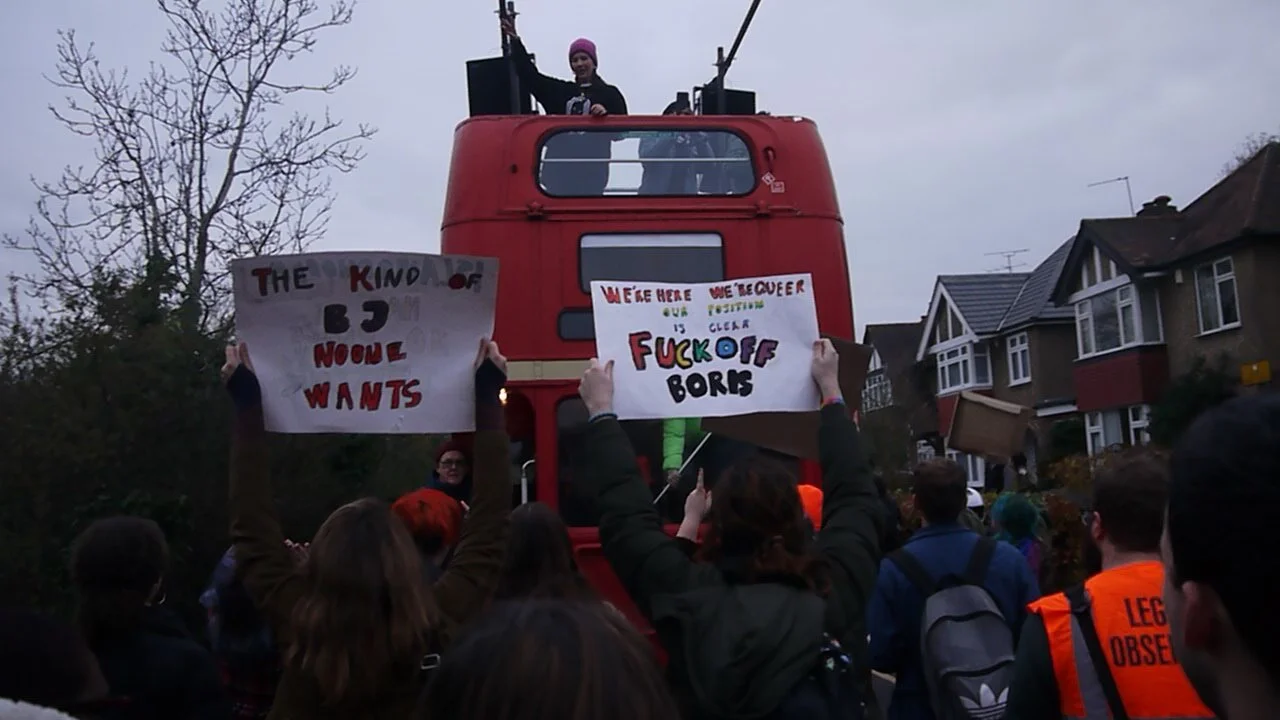The final moments of Jeremy Corbyn’s term as the leader of the opposition
We are in the final moments of Jeremy Corbyn’s term as the leader of the opposition. Before long he will either become the Prime Minister or he will have to stand down as Labour Party leader (more on the second bit later). It’s been an interesting few years in Labour - in a ‘may you live in interesting times’ sort of way - so I thought that with the outcome, for the moment, still undecided this was a good opportunity to reflect on the last four and a bit years.
Corbyn’s successes
Looking at the Labour Party on election day there’s a lot that I like. The manifesto offers many strong policies that I am proud of as a party member. From a strong commitment to do something about the looming climate emergency, to enough money for schools and hospitals that will actually make a difference for people’s lives, Labour is offering genuine progressive change. Corbyn also deserves a lot of credit for rebuilding the party from the low point of 2015 and bringing so many young people into it.
Under Corbyn Labour has offered a proper alternative to austerity and the shameful decline of the public realm that the Tories have presided over, epitomized by a recent story of a child with pneumonia having to sleep on a hospital floor. I’m very glad that the party has left behind the daft idea, which that Ed Miliband and Ed Balls embraced, that Labour must be as equally committed to dismantling public infrastructure as the Tories to in order to appear credible on the economy.
There are also some really radical policies that Labour are offering that will challenge the neoliberal orthodoxy that has dominated Britain since the 1980s. Public ownership, redistribution and investing in infrastructure are back on the table. A vote for Labour is a vote to do something about the long term economic problems that have afflicted this country since the 2008 financial crash.
The challenge
None of this will matter unless Corbyn can win today’s election. The challenge that Corbyn faces is one of holding together Labour’s electoral coalition, which would have been a problem for any Labour leader.
Brexit has cut across the Labour coalition. After much debate, the party has ended up in a strongly pro-Remain position due mainly to effective organising and application of pressure from the committed Remainers in the Labour Party. Unfortunately, Labour cannot win power by being a solely Remain party. They need to hold their pre-2016 coalition together if they’re going to win.
If Corbyn loses the election today then it will most likely be because he failed to win the support of working-class Northern and Midlands Leave voters, the famed Workington Man or M62 voter. Although such descriptions of people are so reductive that they don’t really reflect the complex nature of individuals, the truth is that Labour’s biggest weakness right now is on their Leave side and not their Remain side.
My criticisms
The fact that this weakness might allow Boris Johnson to win a majority is a serious problem. Some of the blame should lie at the feet of ardent Remainers who want Labour to be a Remain party regardless of the consequences. However, if the Tories win by flipping safe Labour seats along the M62 then the majority of the blame rests with Corbyn as party leader.
There many things I’m not happy about Corbyn’s leadership. Allowing the Tories potentially gain a foothold in Leave seats is one. Corbyn has shown poor leadership on Europe and squandered his greatest asset through dithering, obfuscation and triangulation, i.e. He now looks just another politician and not the breath of fresh air promised in 2015.
There is also his failure to tackle antisemitism in the Labour Party. The Labour Party should not a place where people who have hateful opinions about a minority should feel safe to express their views; it should be the opposite. Corbyn’s time as leader has been dogged by the darker side of the left. It has revealed how many in our movement are willing to abuse their political opponents, share divisive narratives, propagate fakes news and amplify hyperpartisan content so long as it backs up their opinion.
There were also missed opportunities to be more radical on the environment, Brexit, immigration and welfare. If Labour is going to lose today, then I would rather lose saying something radical and not have a compromise position on freedom of movement.
The chances of Corbyn becoming the Prime Minister tomorrow morning are low, but the central issue of retaining Leave voters would have been a problem for any Labour Party leader. The breakdown of the traditional left coalition of working-class and middle-class lefties is a problem across the western world that the Labour Party is not immune from.
Vote Labour
I’m encouraging anyone reading this article to go out and vote Labour. We need a Labour government to undo the damage of austerity, tackle rising child poverty, rising homelessness, the housing crisis, the crisis in the NHS, the loom environmental catastrophe and all the other problems the Tories have made worse over the last 9 years.
Realistically I feel the best we can hope for tomorrow is another hung parliament and Johnson to not get a majority. Then again, the 2015 result was an unpleasant surprise, so maybe we’re due a pleasant one.
If Corbyn doesn’t become Prime Minister after this election, then he needs to step down as leader and allow the Labour members to decide what direction they want to go next. If the British electorate won’t make Corbyn Prime Minister then he cannot keep losing elections, this is not advancing the cause of socialism.
What happens in the next few hours will be decisive. As I said before these are the final moments of Corbyn’s time as leader of the opposition. Whatever happens next, Labour needs to learn the lessons of the success and failures of the last four years.
Picture of Jeremy Corbyn taken by Garry Knight and used under creative commons.
Good luck to us all and vote Labour.





